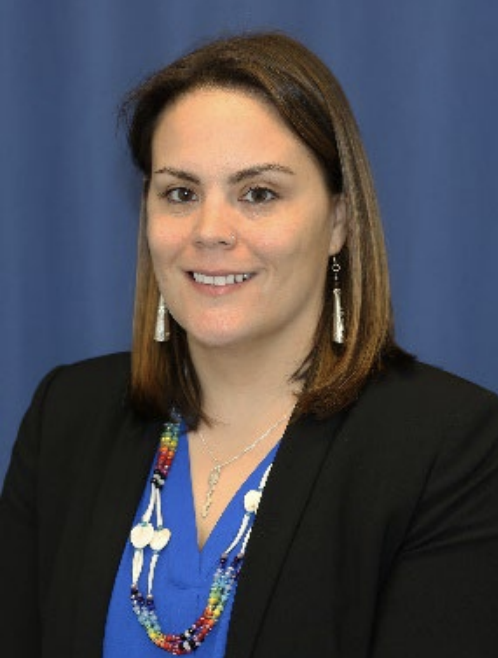The Office of Management and Budget (OMB), which develops and executes the president’s budget, announced it has appointed Elizabeth Carr (Sault Ste. Marie Tribe of Chippewa Indians) to the new permanent Tribal Policy Advisor position.

The position was created to advocate for the needs of Indian Country and ensure the office meets priorities for Indigenous communities.
Carr is the former senior advisor to the director of the Indian Health Service. She previoulsy worked as senior Native affairs advisor with the National Indigenous Women’s Resource Center, Inc.
“This position is historic — the first of its kind at OMB, created out of conversations with Tribal leaders — and will be instrumental in coordinating Tribal priorities across OMB’s budgetary, management, and regulatory functions, while working with other key leaders at the White House and across the entire Administration,” Shalanda Young, director of the OMB, said in a statement.
The National Council of Urban Indian Health — a nonprofit supporting the development of culturally competent health services for Native Americans living in urban areas — applauded the news.
“NCUIH looks forward to collaborating with OMB on long-standing issues impacting access to health care for urban Native communities including providing continuity of funding during continuing resolutions and shutdowns, which have needlessly cost Native lives,” Francys Crevier (Algonquin), CEO of The National Council of Urban Indian Health, said in a statement.
The statement added that the National Council of Urban Indian Health and tribal leaders have long advocated for a permanent position dedicated to Indigenous health care within the OMB.
In April 2021, National Indian Health Board Chairman William Smith (Valdez Native Tribe) wrote to the OMB in response to its initiation of tribal consultation with tribal leaders, part of President Biden’s memorandum ensuring his commitment to strengthening nation-to-nation relationships.
“After decades of neglect in this space, the development of an OMB consultation policy is truly an historic first step,” Smith wrote in the letter. “NIHB is encouraged by OMB’s commitment to ‘build Tribal consultation into their DNA.’”
He recommended several ways the office could improve its communication with and service to tribal nations, including: informed tribal-decision making; establishing a tribal advisory committee to provide OMB direct communication with tribal leaders; and moving away from competitive grant funding and towards formula-based funding.
More Stories Like This
Native News Weekly (August 25, 2024): D.C. BriefsMonday Morning (March 2, 2026): Articles You May Have Missed This Past Weekend
Native News Weekly (March 1, 2026): D.C. Briefs
Scope Narrowed, Report Withheld: Questions Mount Over Michigan Boarding School Study
Zuni Youth Enrichment Project Announces Family Engagement Night and Spring Break Youth Programming
Help us defend tribal sovereignty.
At Native News Online, our mission is rooted in telling the stories that strengthen sovereignty and uplift Indigenous voices — not just at year’s end, but every single day.
Because of your generosity last year, we were able to keep our reporters on the ground in tribal communities, at national gatherings and in the halls of Congress — covering the issues that matter most to Indian Country: sovereignty, culture, education, health and economic opportunity.
That support sustained us through a tough year in 2025. Now, as we look to the year ahead, we need your help right now to ensure warrior journalism remains strong — reporting that defends tribal sovereignty, amplifies Native truth, and holds power accountable.
 The stakes couldn't be higher. Your support keeps Native voices heard, Native stories told and Native sovereignty defended.
The stakes couldn't be higher. Your support keeps Native voices heard, Native stories told and Native sovereignty defended.
Stand with Warrior Journalism today.
Levi Rickert (Potawatomi), Editor & Publisher


